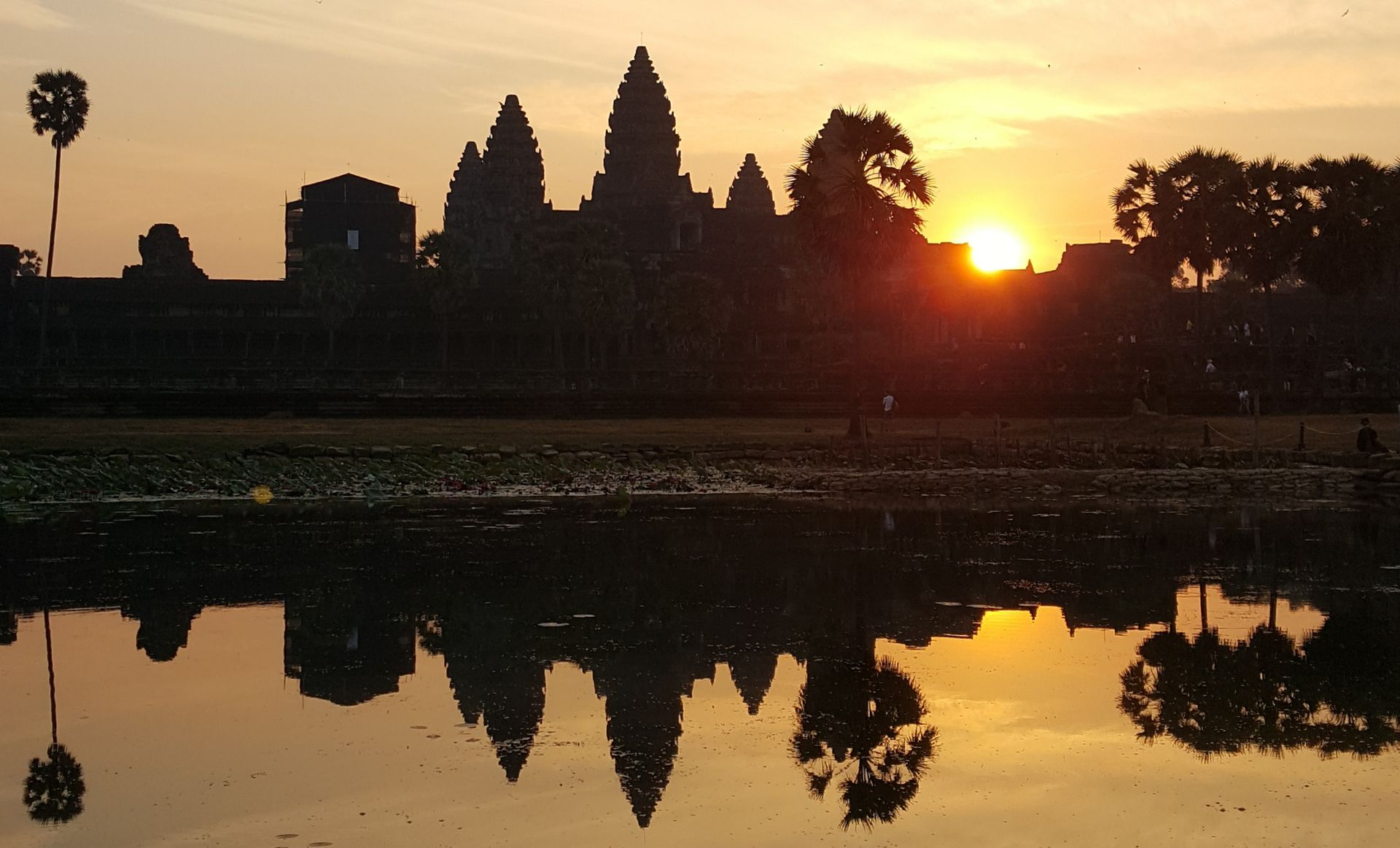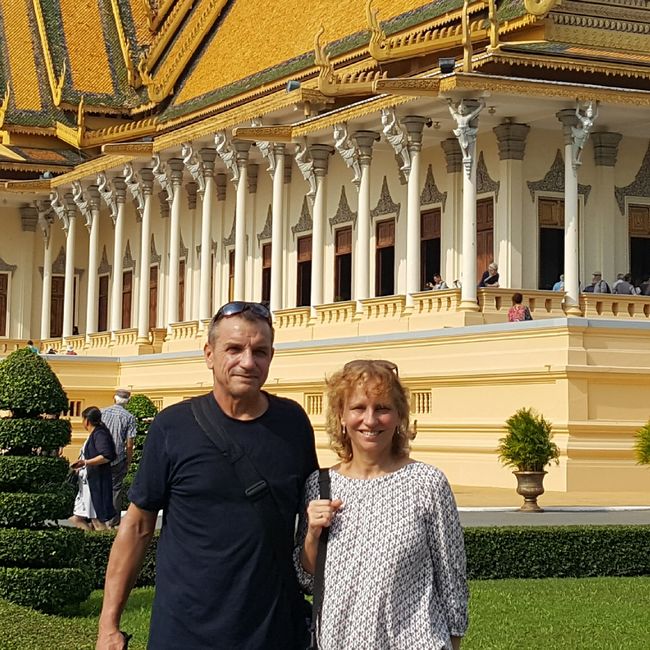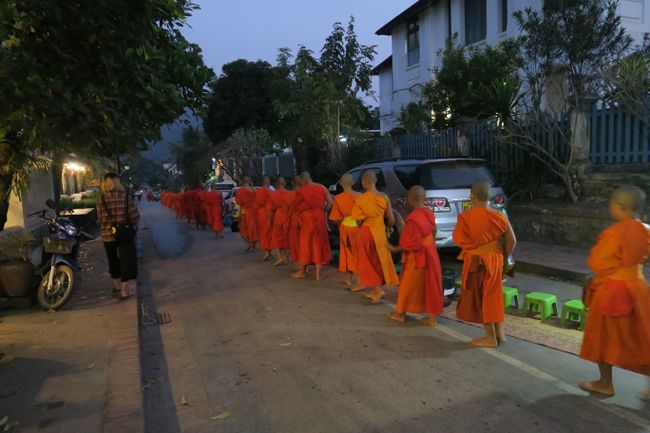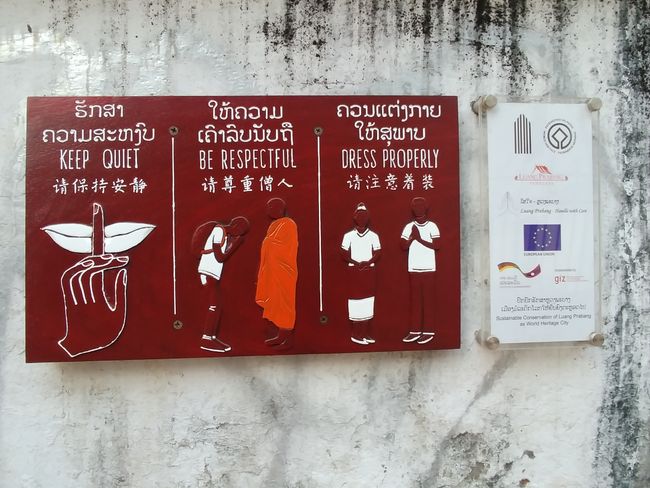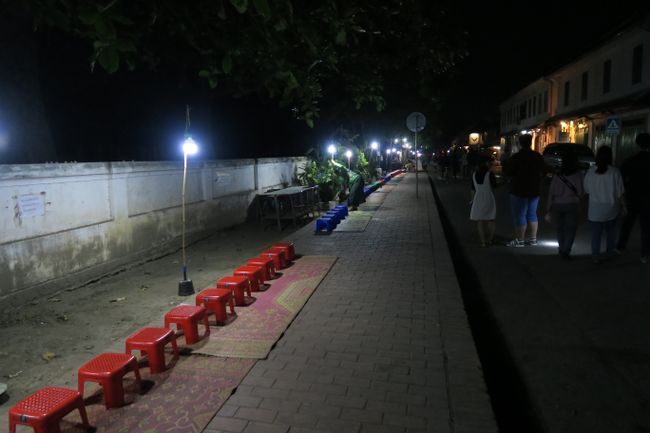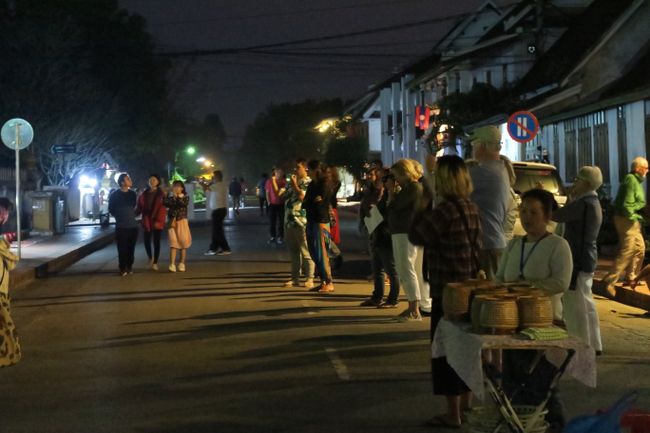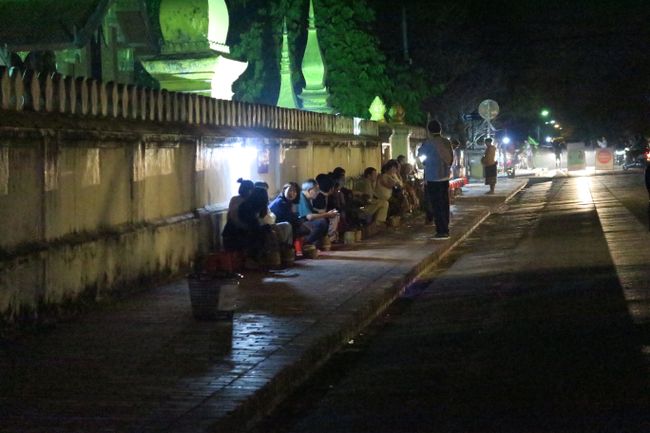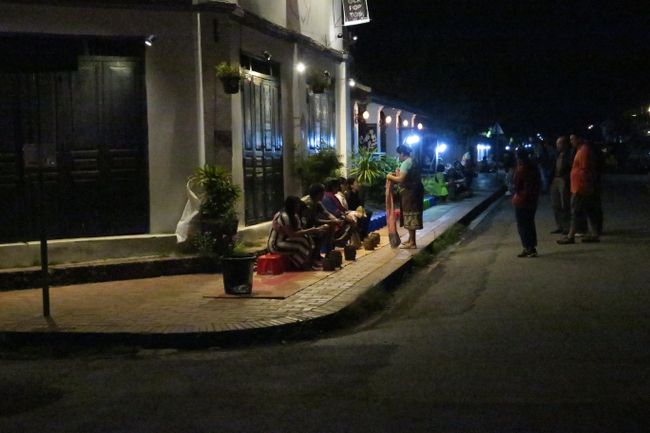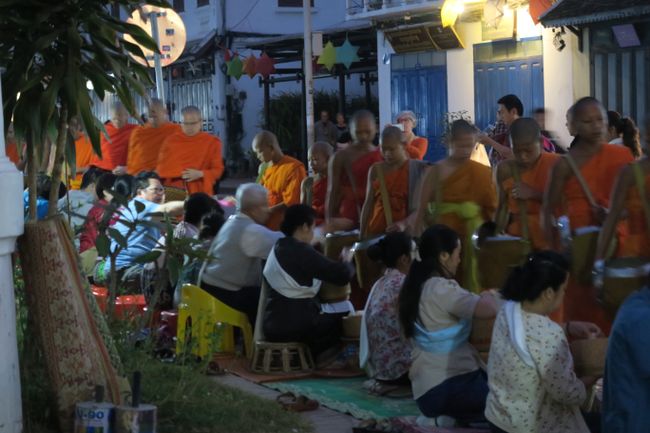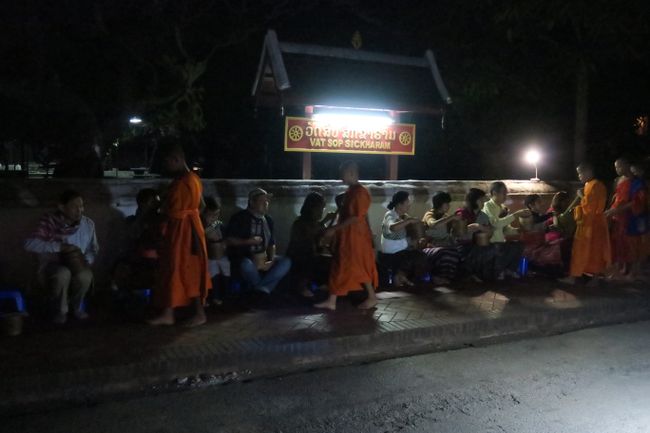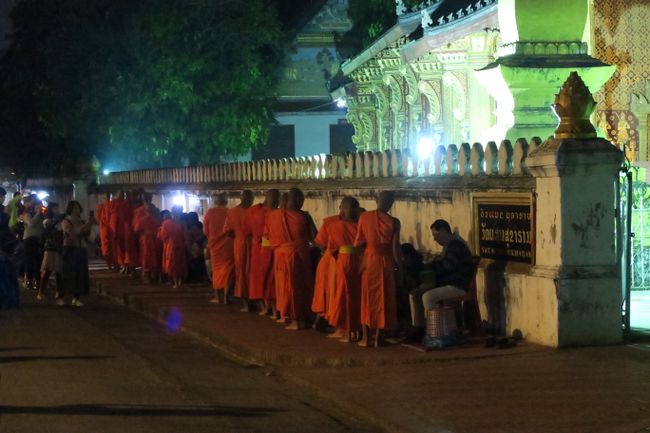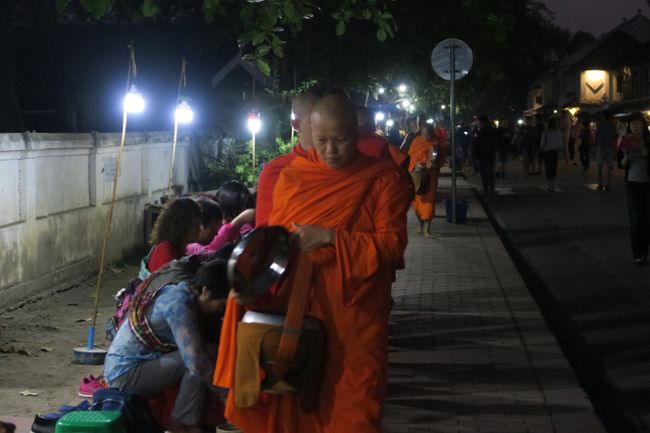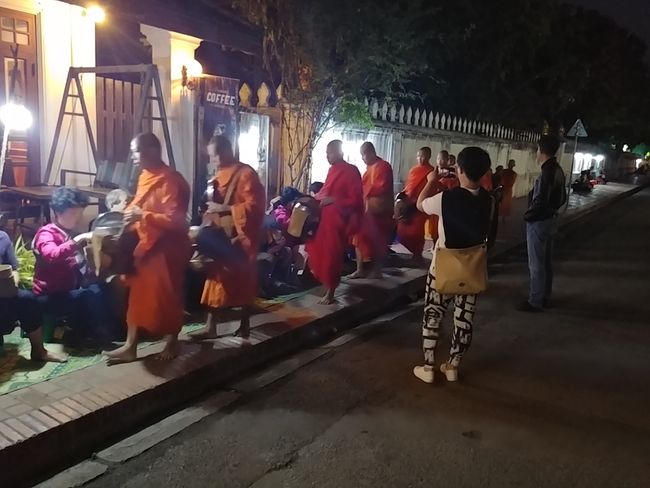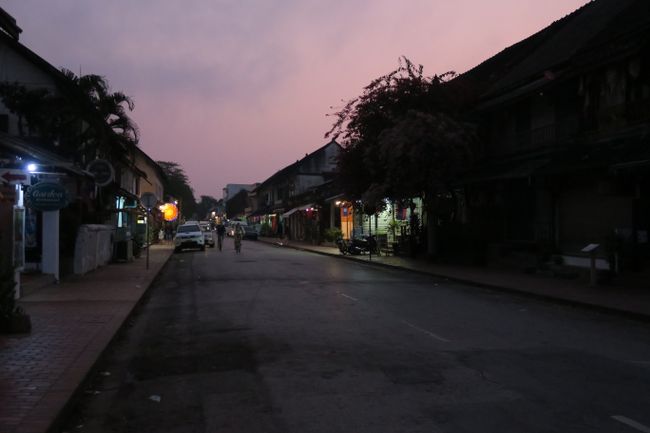Tak - Bath
प्रकाशित: 21.02.2019
समाचार पत्रिका के लिए सदस्यता लें
Luang Prabang has the highest 'temple density' of all cities in Laos with 300 temples. 30 of them house active monasteries, which is also a peak value. Accordingly, the number of monks who come out of their monasteries in Luang Prabang early in the morning to perform the Tak-Bath ceremony is very large.
In many cities, we have seen individual monks going from door to door asking for alms.
But in Luang Prabang, it is different. Here, the monks come out of their temple districts shortly after 5:30. Due to the large number of temples, some of which are located right next to each other, the number of monks in the streets is unusually large.

This inevitably attracts tourists. On the one hand, because of the special photo opportunities, on the other hand, because here one can easily join the ranks of the alms givers to ask for the blessings of the monks.
On the internet, there are many, mostly critical comments due to the hustle and bustle caused by tourists during this religious and pious act. We were also torn about whether we should witness this event.
In the end, despite some slight concerns, we decided to see it with our own eyes. The 'official' instructions on what is allowed and what should be avoided during this ceremony were also decisive.
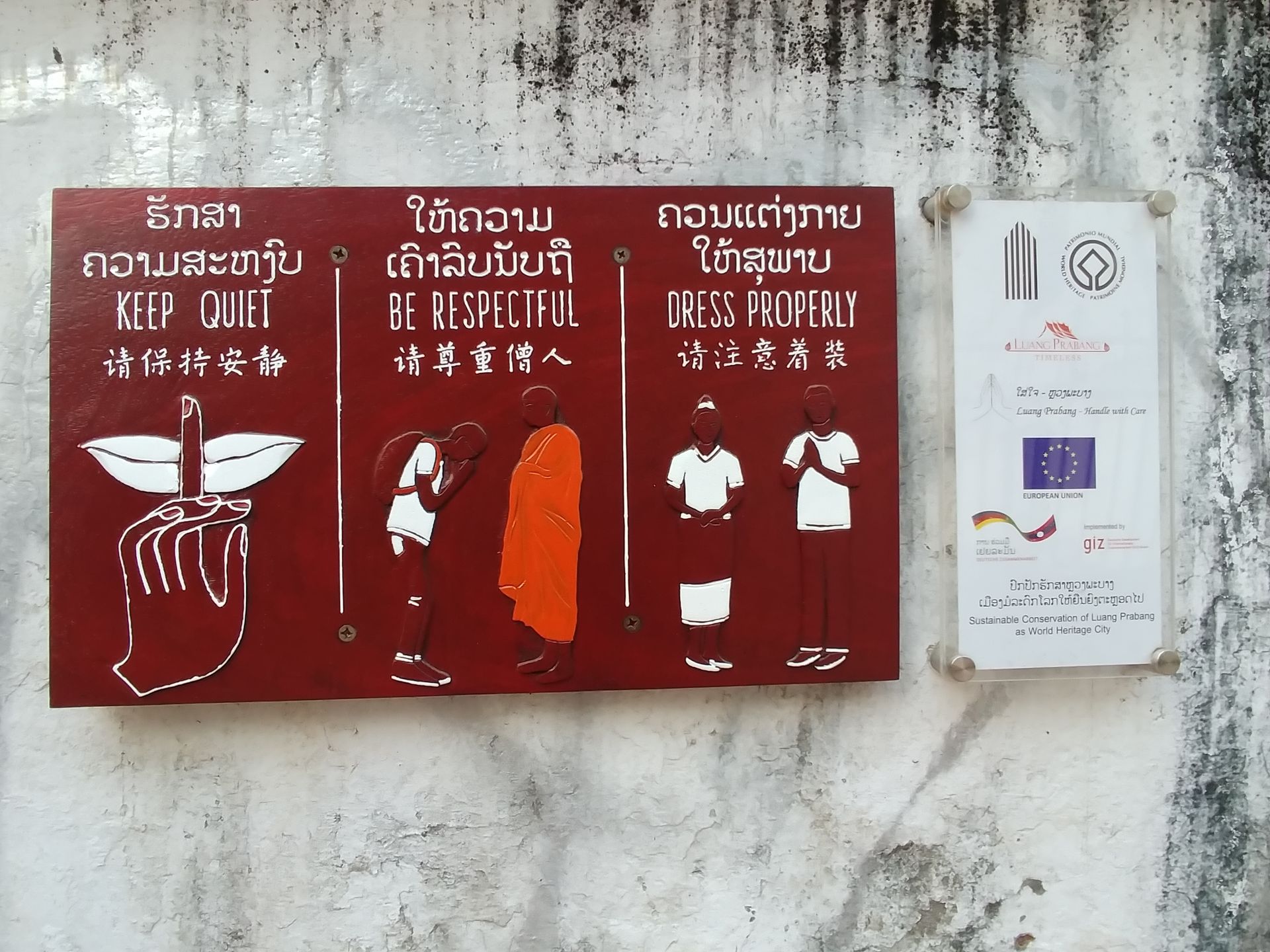
Another sign allowed photography, but without flash.
This indicated that they are well aware of the tourist significance of this religiously justified almsgiving and are trying to find a balance between both sides.
This impression was confirmed when we walked from our accommodation to the part of the city with the most temples.

There were small chairs for the almsgivers to sit on, and special lighting was installed, as it is still dark in Laos at this time.
There were also stalls where you could buy rice as alms for the monks. It was conspicuous that all the saleswomen had a kind of accreditation card. This is probably to ensure that the monks do not receive inferior or even bad rice from tourists.
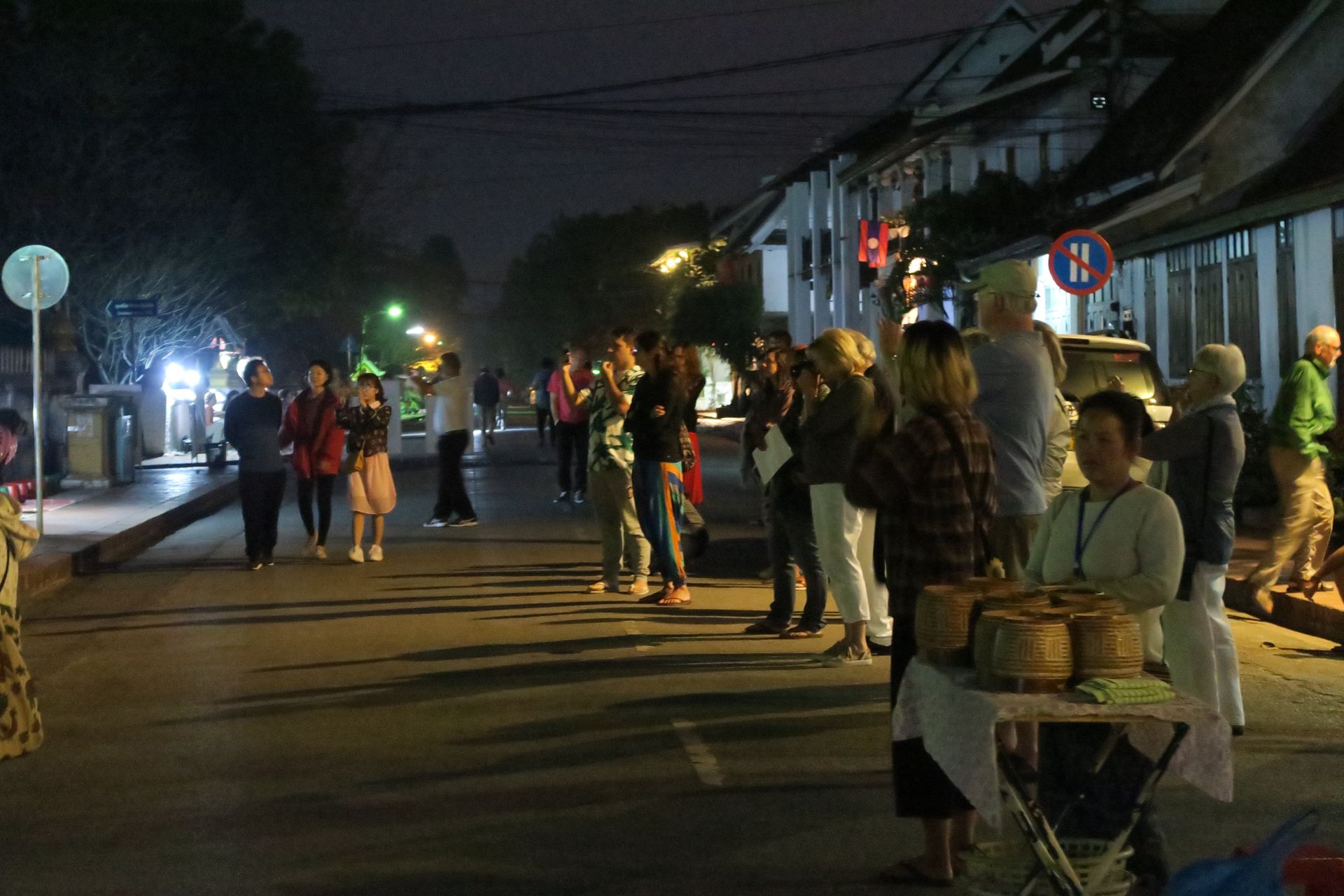
The streets slowly filled with photographers and almsgivers.
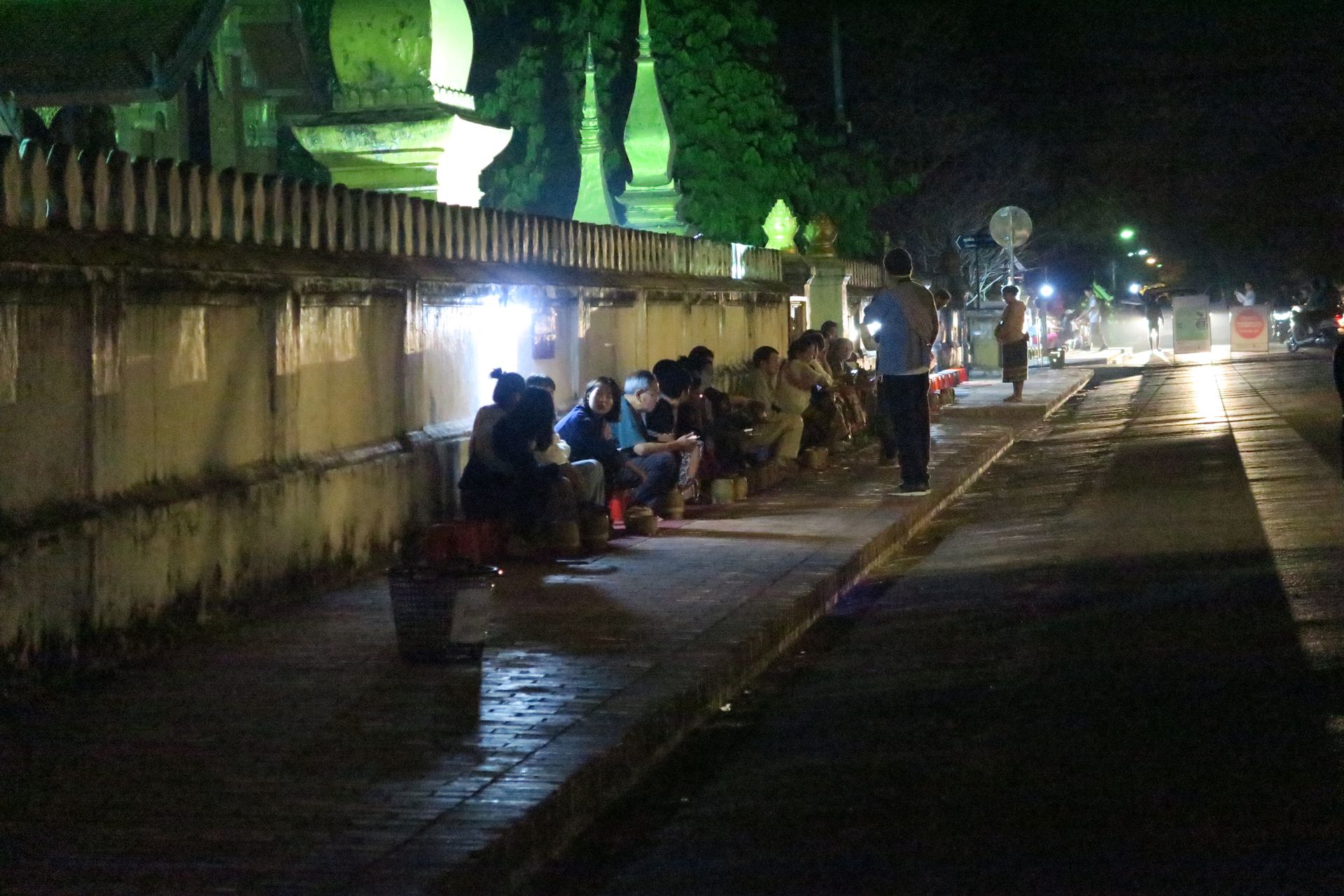

Despite all these indications that tourists can participate in the tak-bath ceremony, Anke did not feel comfortable in this atmosphere and returned to our guesthouse.
The monks started their morning duty with deep slow beats on the big drum of a temple.
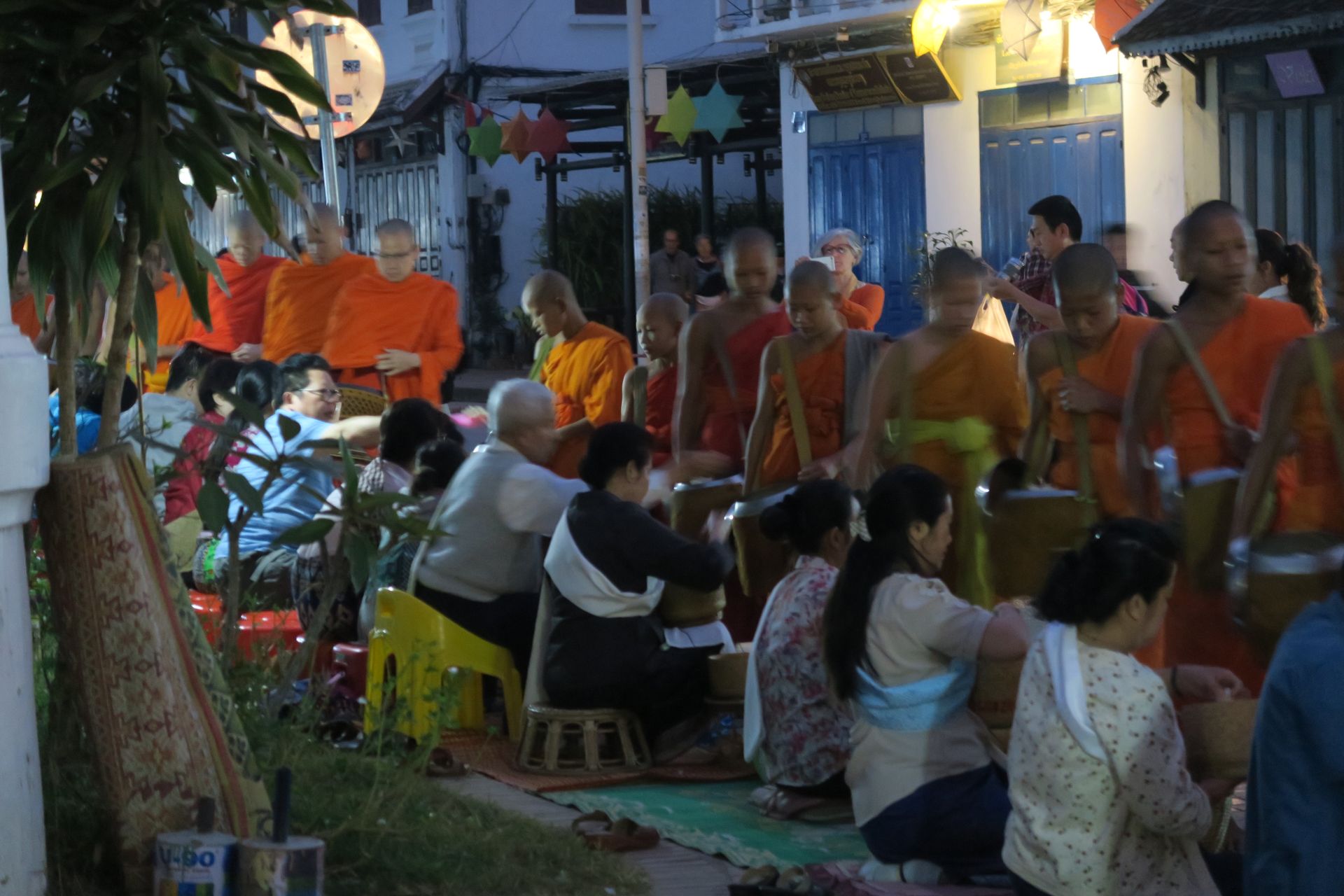
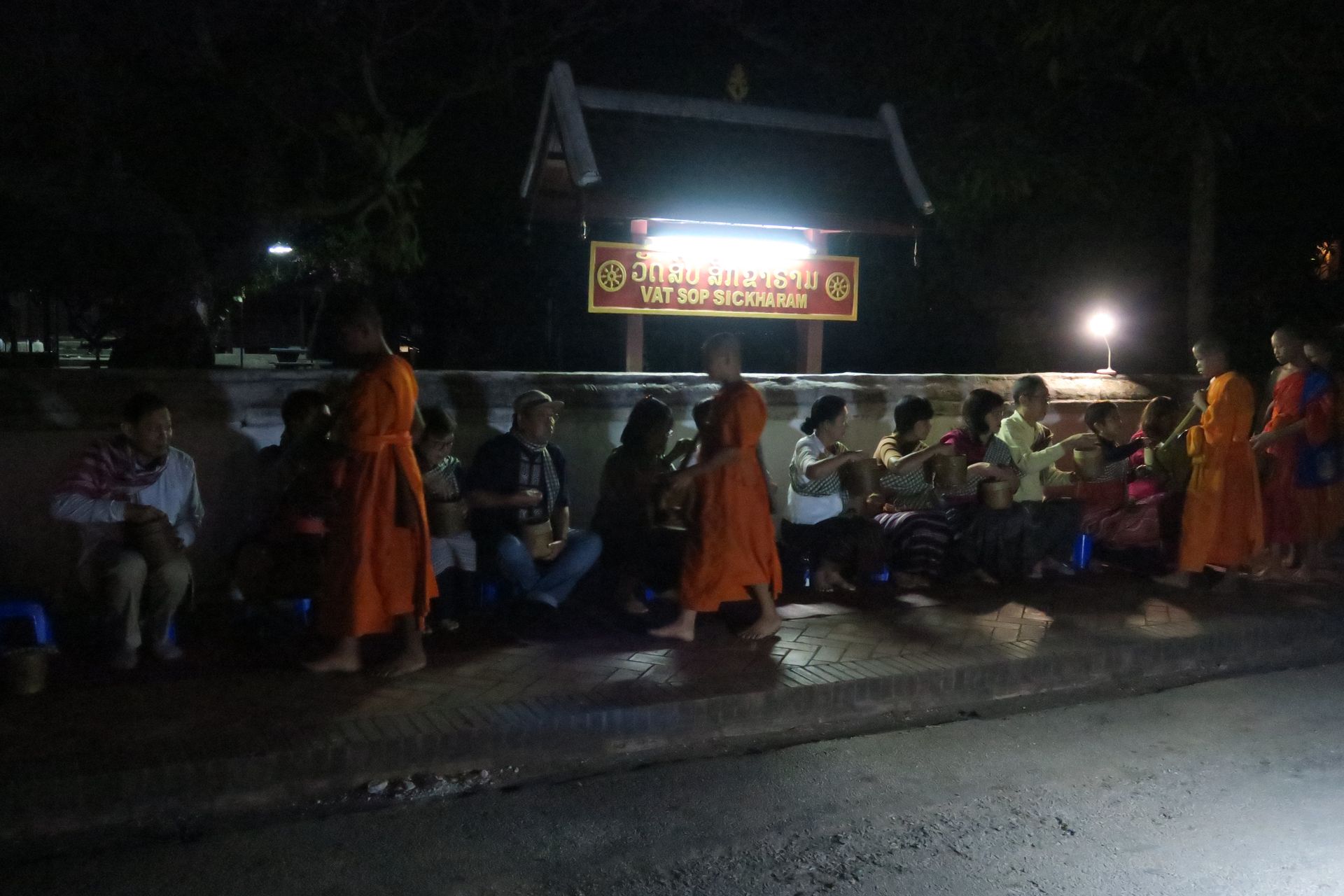
I found the atmosphere quite impressive and unusual for us 'Westerners'. Of course, I also had doubts about whether it is right to observe religious rituals as a voyeur and possibly interfere with the monks and the faithful Buddhists in their religious practices, especially when the number of spectators is greater than that of participants.
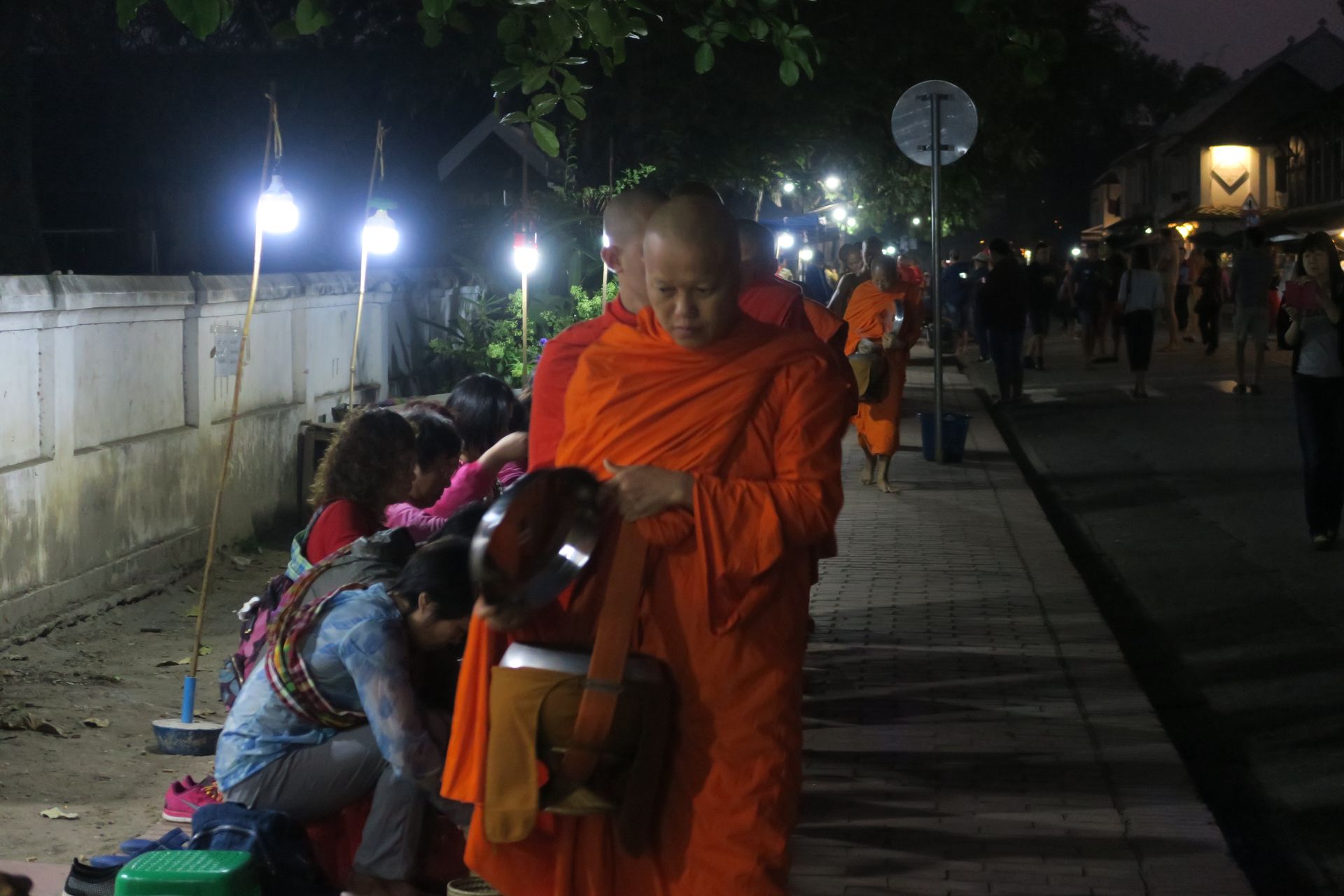
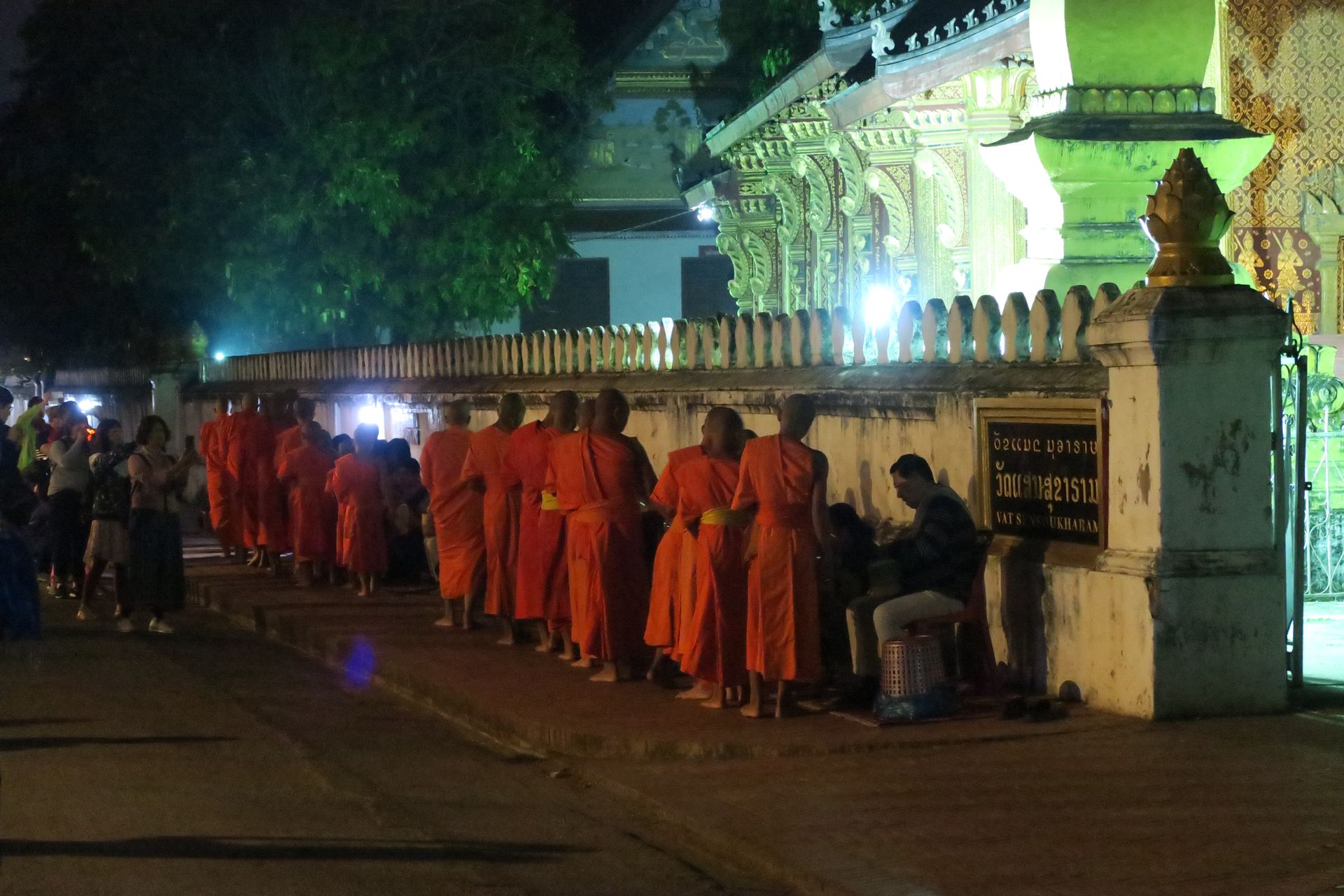

On the whole, the tourists complied with the requests to be quiet and respectful.
As long as it continues like this, both the monks and the tourists benefit.
- The alms bowls of individual monks were filled to the brim after some time. They then transferred the rice, which they sometimes received in plastic bags, to ready-made baskets. -
After about an hour, it is over, just before sunrise.
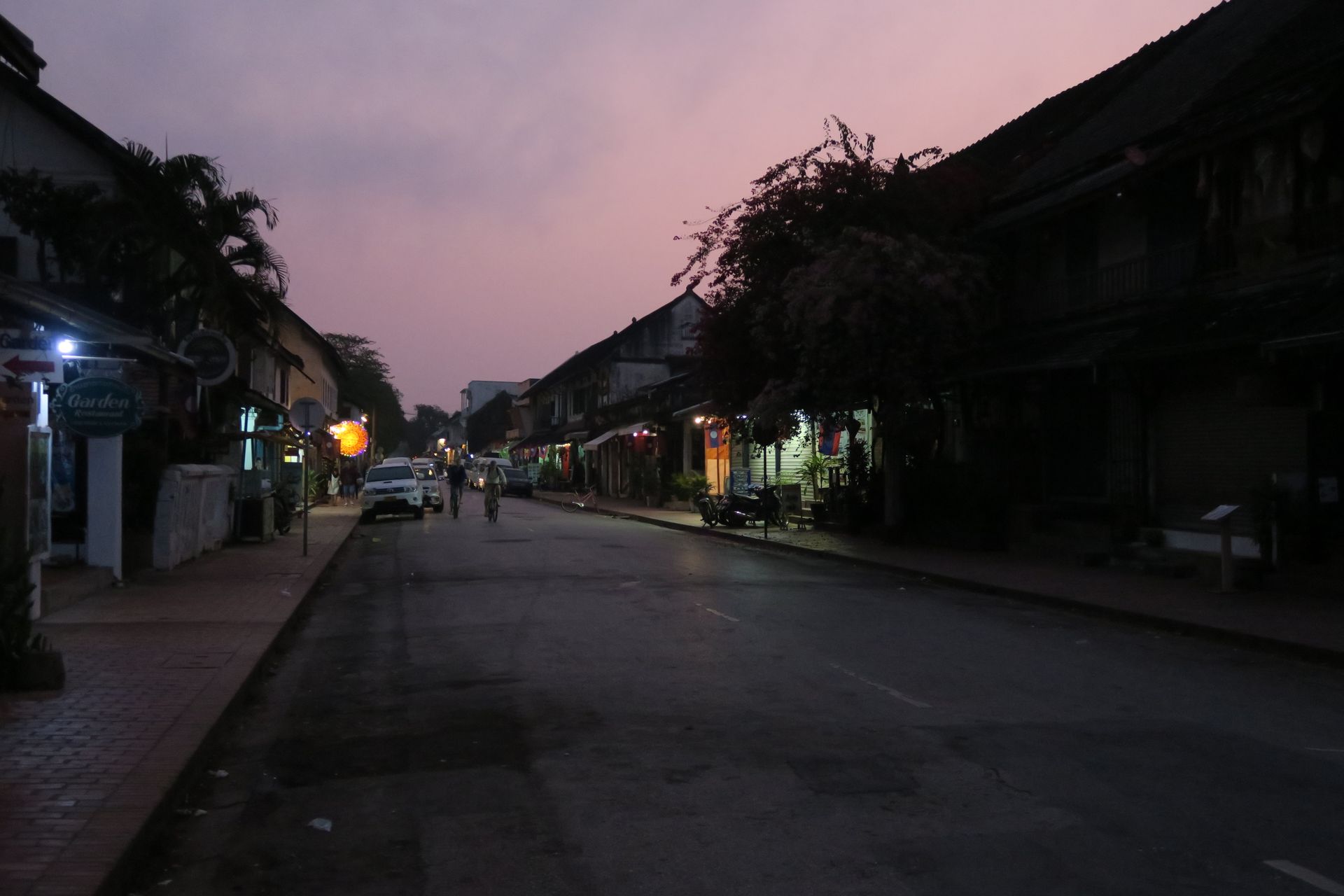
समाचार पत्रिका के लिए सदस्यता लें
उत्तर (1)
Tomaso
Das ist ja richtig spannend!